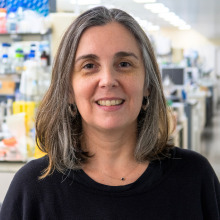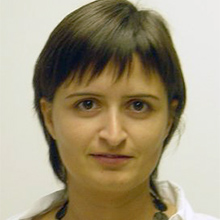Subclinical Infections in Children and Long Term Health Effects
Infection acquisition in early life and health outcomes in childhood - MARATO TV3

- Duration
- April 2019 - October 2023
- Coordinator
- Manolis Kogevinas
- Funded by
- Fundació la Marató de TV3
The primary objective of this international study in three European countries (Greece, Spain, UK) is to evaluate infections to polyomaviruses, herpesviruses, adenovirus 36 and H. pylori examining immunoglobulin G (IgG) seroreactivity measured by fluorescent bead-based quantitative suspension array technology (qSAT) in different ages in early childhood, to examine the association of infections to specific agents and to patterns of infections with incidence and prevalence of child obesity, neurodevelopment, asthma and allergies, and to identify associated molecular signatures in blood cells.
The specific objectives are:
- To evaluate seroprevalence of infections to polyomaviruses, herpesviruses, adenovirus 36, and H. pylori in early life in established mother-child cohorts in three European countries analyzing repeated serum samples (n=around 5000) collected from birth to 9 years of age.
- To identify social-environmental factors (including sociodemographic, perinatal reproductive outcomes, social-economic status, lifestyle, hygiene practices, vaccination, breastfeeding) and genetic factors that determine the acquisition of these infections in early childhood.
- To evaluate prospectively the association between seropositivity to single and multiple infections in different ages, including fetal life, with cognitive and motor development and child behaviour.
- To evaluate prospectively the association between seropositivity to single and multiple infections in different ages, including fetal life, with growth and obesity (body mass index (BMI), waist circumference, skinfold thickness, hand-to-leg bioelectrical impendence) and cardiometabolic traits (blood pressure measurements, serum lipids, leptin and adiponectin levels).
- To evaluate prospectively the association between seropositivity to single and multiple infections in different ages, including fetal life, with allergies and childhood asthma.
- To evaluate pathways associated with infection acquisition examining molecular signatures in blood cells at age 7-9 years associated with early-life infections including DNA methylation, and gene and miRNA expression.
Contributors
- INMA cohort, Catalonia, Basque Country, Valencia, Spain: Jordi Sunyer, Martine Vrijheid, Jesus Iberluzea and Maria-Jose Lopez-Espinosa.
- RHEA cohort, Heraklion, Greece: Marina Vafeiadi, Theano Roumeliotaki and Leda Chatzi.
- Born in Bradford (BiB) cohort, Bradford, UK: John Wright and Lucy Pembrey.
- ICO (Catalan Institute of Oncology), Barcelona, Spain: Delphine Casabonne.
Total Funding
119,856 €
MARATO TV3 project number 201819, Reg. 78/437
Our Team
Coordinator
-
 Manolis Kogevinas Research Professor
Manolis Kogevinas Research Professor
ISGlobal team
-
 Marianna Karachaliou Postdoctoral Researcher
Marianna Karachaliou Postdoctoral Researcher -
 MARIONA BUSTAMANTE Staff Scientist
MARIONA BUSTAMANTE Staff Scientist -
 Carlota Dobaño Research Professor
Carlota Dobaño Research Professor -
 Ruth Aguilar Staff Scientist
Ruth Aguilar Staff Scientist -
 Ana Espinosa Statistician
Ana Espinosa Statistician -
 Jordi Sunyer Research Professor
Jordi Sunyer Research Professor




